Biden Resumes Border Wall Construction Amid Immigration Crisis, Reverses Prior Decision About ‘Not Another Foot Of Wall’
In a significant shift in policy, President Joe Biden has opted to permit the construction of a border wall, a policy closely associated with his predecessor, Donald Trump.
This decision, despite his initial pledge not to do so, is driven by the need to address the escalating immigration crisis impacting multiple states and straining public resources.
Resources Are Strained
Cities throughout the United States are contending with a substantial influx of migrants – pushing local resources to their limits.
For instance, New York City has received nearly 123,000 asylum seekers since last spring, an effort proving to be financially burdensome and is projected to cost an estimated $12 billion over the next three years.
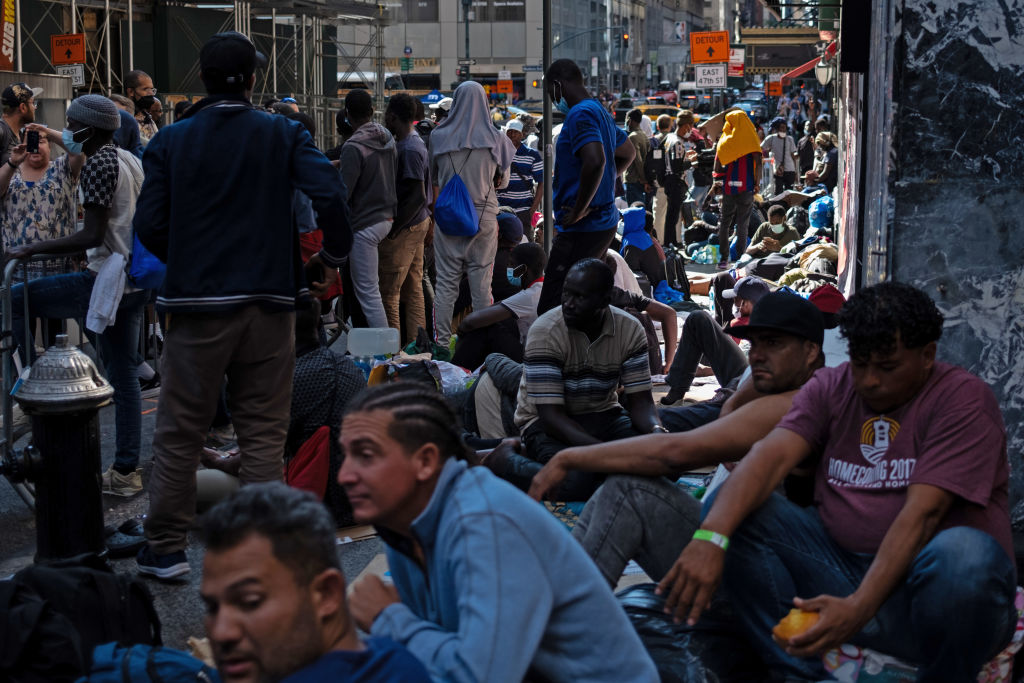
Source: Alexi Rosenfeld/Getty Images
Mayor Eric Adams' Warning
Mayor Eric Adams has warned that without federal assistance, the city could face dire consequences. Other cities like Denver, Chicago, and Washington are grappling with similar challenges.
This policy change inevitably draws comparisons to Donald Trump, who championed the border wall as a central element of his immigration policy.
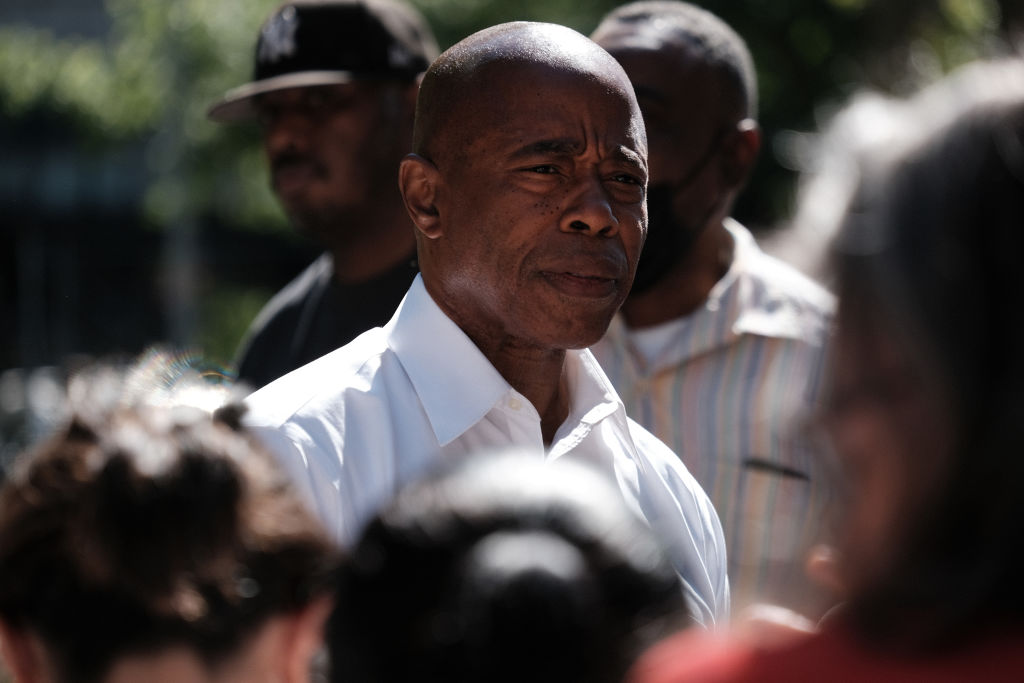
Source: Spencer Platt/Getty Images
'Not Another Foot Of Wall'
While Biden had been a vocal critic of this approach, previously declaring that “not another foot of wall” would be built during his administration, his recent reversal highlights the intricate and pressing nature of the immigration issue.
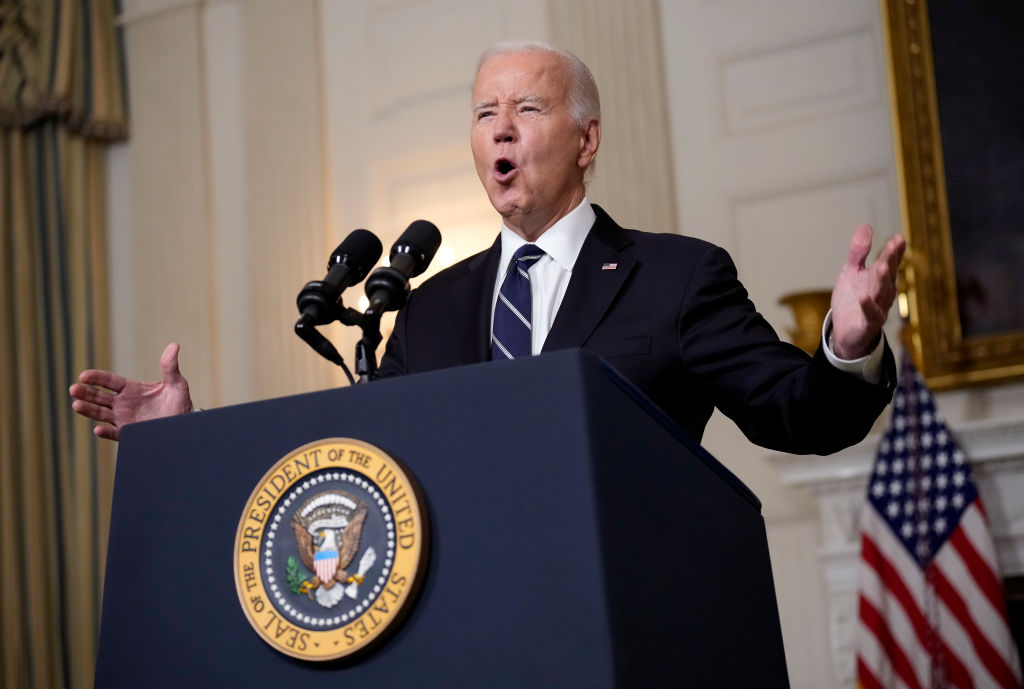
Source: Drew Angerer/Getty Images
Concern Over The Government's Handling Of The Border Crisis
Illinois Governor JB Pritzker, a staunch supporter of Biden, expressed criticism towards the administration for what he saw as insufficient support when Texas officials transported over 15,000 migrants to Illinois last year.
Pritzker’s sentiment resonates with the broader frustration concerning the federal government’s management of this crisis.
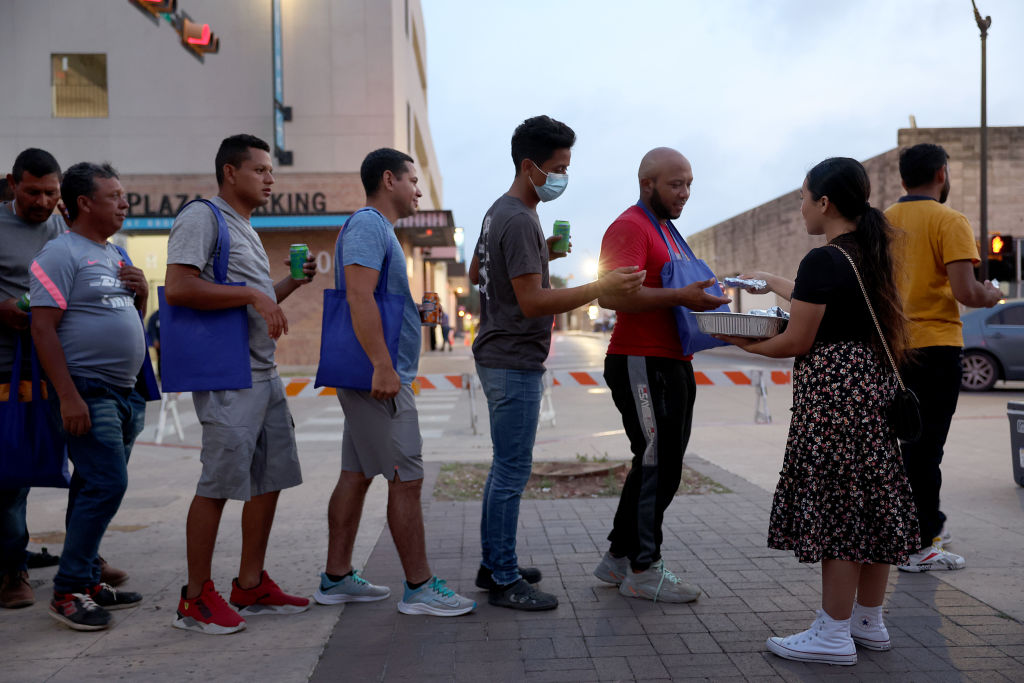
Source: Joe Raedle/Getty Images
The Wall Won't Solve The Main Problem, According To Biden
The decision to resume wall construction not only represents a shift for Biden but also raises a contentious issue within the Democratic Party, which has consistently condemned the wall as an ineffective solution.
Biden clarified that he still holds the view that the wall won’t address the core problem.
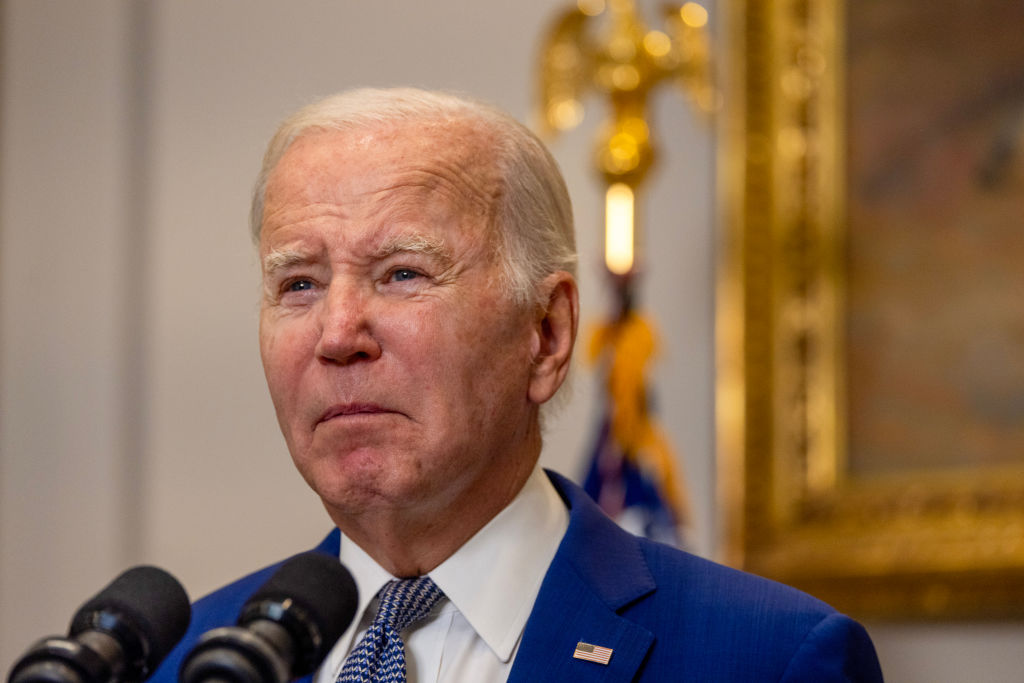
Source: Tasos Katopodis/Getty Images
The Public Isn't Pleased
Nevertheless, he felt compelled to utilize the funds allocated for wall construction in 2019, citing an inability to redirect the money for other purposes.
Biden’s approval ratings reflect the public’s dissatisfaction with his handling of immigration.
According to a recent Gallup poll, while his overall approval rating stands at 42%, his rating on immigration is notably lower, at 31%.
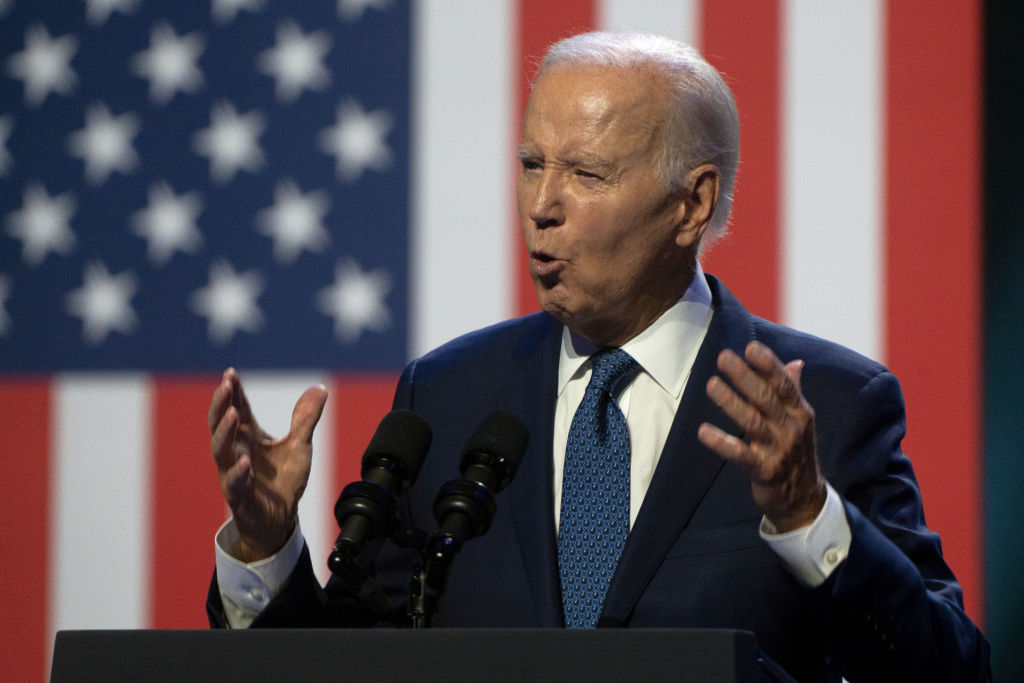
Source: Rebecca Noble/Getty Images
Transcending National Borders
The challenge he confronts is not merely political but intricately tied to Americans’ concerns about their safety and the allocation of their tax dollars.
The immigration predicament transcends national borders, representing a part of a larger global trend.
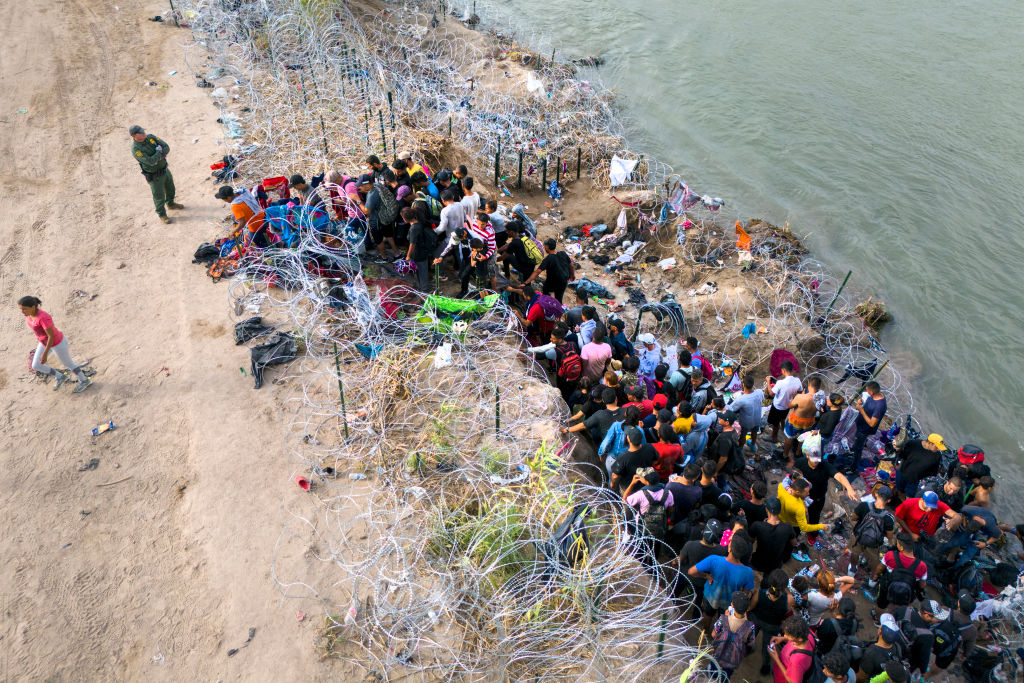
Source: John Moore/Getty Images
Other Countries Grapple With Instability
Countries in South and Central America, such as Venezuela, Nicaragua, and Cuba, grapple with economic and political instability, compelling their citizens to seek asylum in the United States.

Source: Guillermo Legaria/Getty Images
Stringent Measures
Nonetheless, the current U.S. system proves inadequate in efficiently processing these asylum requests, subjecting many to extended periods of uncertainty.
The policy shift concerning the border wall illustrates the Biden administration’s readiness to adopt more stringent measures in addressing the immigration crisis.
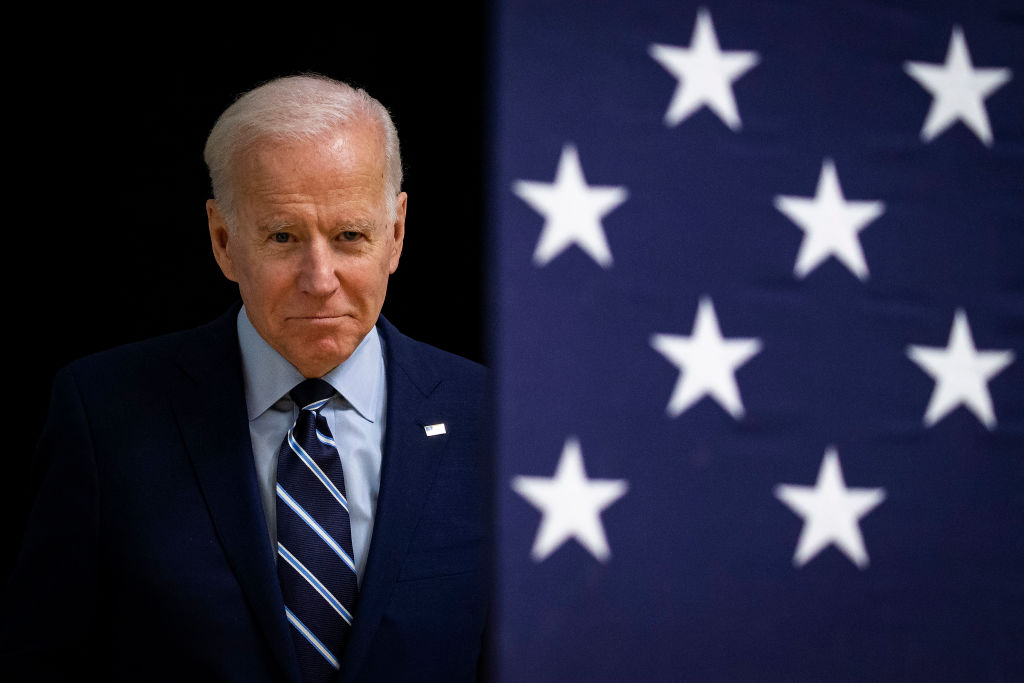
Source: Al Drago/Getty Images
New Regulations And Mandates
Consequently, new regulations now mandate that asylum seekers must initially apply for and be denied legal protection in another country before seeking asylum in the U.S.
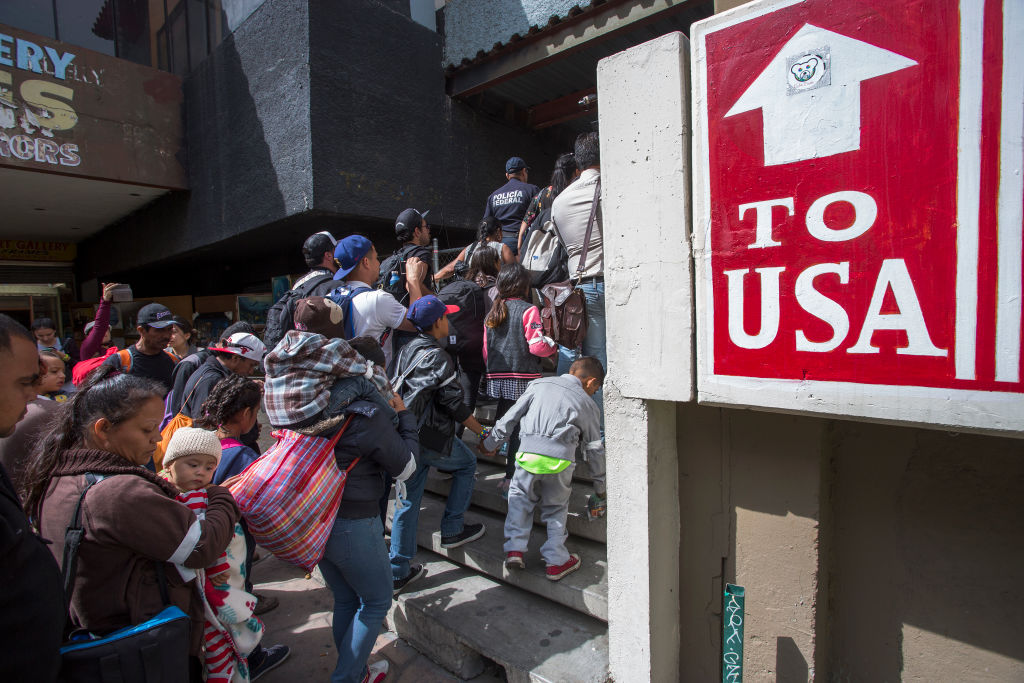
Source: David McNew/Getty Images
Facing Continual Challenges
Furthermore, those returned may face a minimum of a five-year ban on re-entry into the country and potential criminal prosecution for repeated attempts.
The choice to recommence border wall construction signifies a pivotal juncture in the Biden administration’s immigration strategy.
Although the decision has stirred criticism within his own party, it underscores the enormous challenge the nation faces in addressing an ongoing crisis.
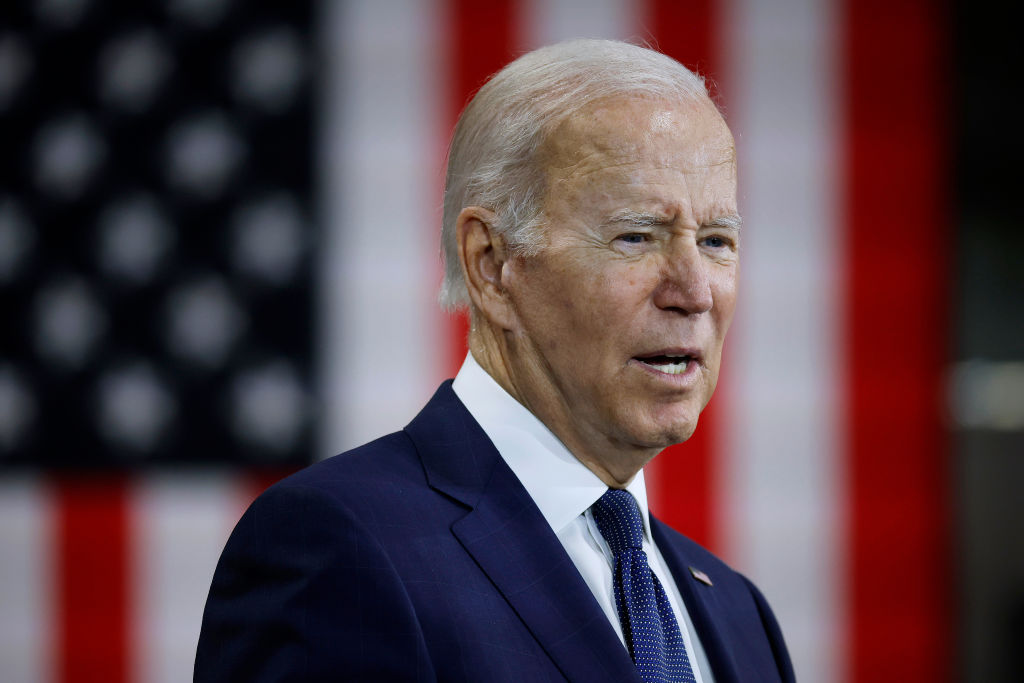
Source: Chip Somodevilla/Getty Images
